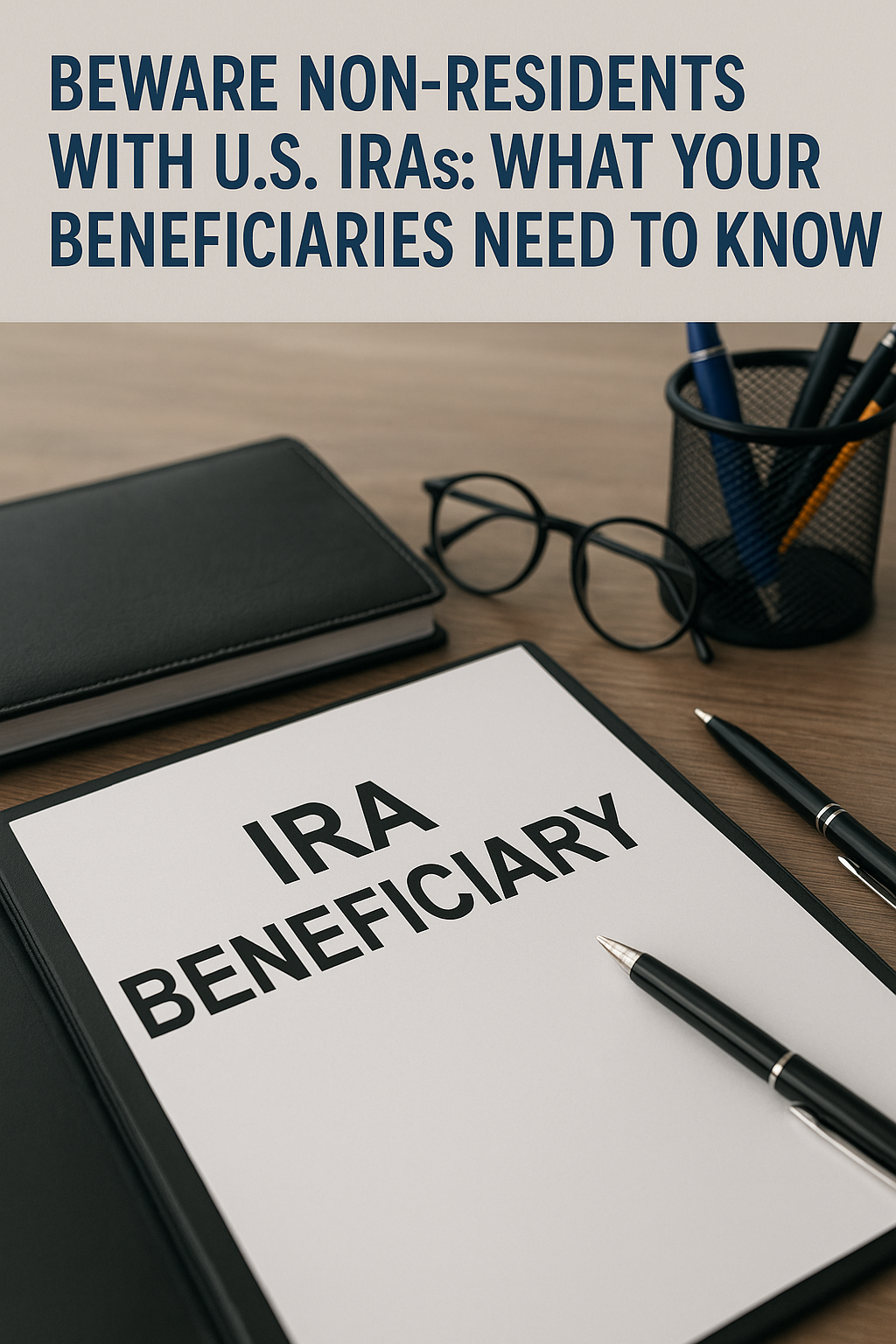Navigating the world of cross-border financial planning can be complex, especially when dealing with multiple countries’ regulations. As a globally mobile individual, you might find it challenging to manage your finances effectively.
Cross-border financial planning helps you optimize your wealth across different countries, ensuring efficient management of taxes, investments, and retirement planning.
Effectively growing your wealth requires careful consideration of international regulations. Understanding the nuances of cross-border investment can lead to significant financial advantages.
It’s important to carefully evaluate cross-border investment strategies, which can include managing estate plans for international assets. Firms like 49thparallel Wealth Management specialize in helping Canadians moving to the U.S., and vice versa, providing insights into tax, estate, and financial planning for such transitions.
Key Takeaways
- Cross-border financial planning optimizes wealth management globally.
- Adapting to international regulations is crucial for financial success.
- Effective investment and estate strategies enhance financial stability.
Understanding Cross Border Regulations
Cross-border financial planning requires careful attention to regulations. Key areas include tax treaties, compliance frameworks like FATCA and CRS, and the complexities of dual taxation.
Tax Treaties and Information Exchange Agreements
Tax treaties are agreements between countries that help manage tax liabilities in multiple jurisdictions. These treaties can reduce or eliminate double taxation on the same income source. They often include provisions on taxing rights over different types of income, such as dividends or royalties.
Information exchange agreements are another critical component. These agreements allow countries to share financial data to track international tax compliance. By staying informed of these agreements, you can better optimize tax advantages and avoid legal issues in cross-border planning.
Compliance with FATCA and CRS
The Foreign Account Tax Compliance Act (FATCA) and the Common Reporting Standard (CRS) are crucial for the IRS to ensure tax and financial compliance. FATCA is a U.S. law that requires foreign financial institutions to report accounts held by U.S. taxpayers. This law aims to combat tax evasion.
CRS, on the other hand, is a global standard for the automatic exchange of information developed by the OECD. It requires signatory countries to exchange financial account information. Understanding these frameworks helps manage reporting requirements and avoid significant penalties.
Navigating Dual Taxation and Foreign Tax Credits
Dual taxation occurs when income is taxed by two countries. To manage this, you should focus on foreign tax credits, which allow you to offset taxes paid to another country. This credit can reduce your overall tax liability.
Most countries have specific rules to compute these credits and understanding them is essential. An effective strategy might involve analyzing how foreign tax credits apply to your situation and the types of foreign tax credits being generated. The U.S. has two types of foreign tax credits – passive foreign tax credits and general limitation foreign tax credits. This analysis can lead to better planning and help minimize double taxation challenges.
Cross Border Investment Strategies
When engaging in cross-border investment strategies, it’s important to focus on residency of the client, jurisdiction of the account, asset allocation, types of securities held, managing risk, and dealing with currency exchange. Ensuring each element harmonizes can significantly impact the success of your investment efforts.
Asset Allocation Across Diverse Markets
Allocating assets across different markets is crucial for diversifying investment portfolios. By spreading capital across various geographic regions and market sectors, you can increase the potential for returns and reduce exposure to local economic downturns.
Diversification allows you to tap into growth opportunities unique to each market. Consider both emerging markets, with their dynamic growth potential, and stable economies, which offer more consistent returns. It is essential to research economic conditions, political stability, and market trends globally to ensure a balanced and robust allocation strategy.
Risk Management in Foreign Investments
Foreign investments introduce unique risks, such as political instability and regulatory changes. To manage these, conduct thorough due diligence and stay informed about international policies. Analyzing past market behavior can help you anticipate potential pitfalls.
Establish safeguards against market risk and focus on a long-term perspective to weather short-term volatility. Understand the legal and tax implications in each country. Collaborating with local experts can further mitigate risks, providing valuable insights into specific market dynamics and regulatory environments.
Currency Exchange and Hedging Techniques
Currency exchange rates can significantly impact cross-border investments. Fluctuations may affect returns and can lead to unexpected losses. Implementing hedging techniques can help stabilize your investment income but also comes at a cost.
Consider forward contracts to lock in exchange rates and minimize exposure to currency risks. Options can provide flexibility as they allow the purchase or sale of currency at a predetermined rate. Regularly review your hedging strategies to ensure they align with your changing investment goals and risk tolerance. Monitoring economic indicators and central bank policies can also guide your currency risk management strategy.
Retirement Planning Across Borders
When planning for retirement across borders, you need to consider different pension plans, social security agreements, and how retirement savings work in a global setting. Understanding these aspects can help you make well-informed decisions to secure your financial future.
Pension Plans and Social Security Agreements
Navigating the landscape of pension plans in different countries can be complex. Some countries have bilateral agreements that help coordinate Social Security benefits for individuals with work histories in multiple countries. These agreements often cover how your work in one country can contribute to qualifying for a pension in another, ensuring you receive fair benefits.
It is important to know the specific rules of each country involved. Countries like the U.S. have Totalization Agreements with several nations, which determine how your contributions to their social security systems are recognized. Consulting with a cross-border financial advisor can provide personalized guidance based on your work and residence history.
Retirement Savings in a Global Context
Managing retirement savings across borders requires a strategy that considers differences in tax regulations and investment options. Tax rules can significantly affect your savings when transferring or withdrawing funds internationally.
Consider investing in tax-advantaged accounts available in the countries where you will retire and work. 49th Parallel Wealth Management offers tailored solutions designed to help you manage these complexities efficiently. Understanding country-specific regulations and seeking professional advice will ensure your retirement savings are both maximized and protected.
Estate Planning for International Assets
Handling international assets involves understanding complex legal systems and tax regulations. Managing these challenges is essential to protect your wealth and ensure smooth transitions across borders. Both countries have a probate process and use trust, wills, and powers of attorney for estate planning. A trust in one country doesn’t necessarily work in the other and trustee and beneficiary designations can complicate tax filing. Estate planning documents are jurisdictional so a will in one country may not be accepted in another. The names of the documents are similar but different. An experienced cross-border advisor can be invaluable in ensuring your estate is administered as you wish.
Cross Border Inheritance Laws and Taxes
Navigating estate and inheritance laws and taxes in different countries can be complex. Each nation has its own regulations regarding how assets are transferred upon death. You must familiarize yourself with these laws to avoid legal complications.
Tax treaties between countries can impact estate planning significantly. These treaties help prevent double taxation, allowing you to manage your estate more efficiently. For example, tax treaties clarify tax obligations in different jurisdictions, and it’s crucial to understand how these agreements apply to your assets.
Consult with legal experts who specialize in cross-border issues. They can guide you in understanding the nuances of foreign estate laws, helping you make informed decisions.
Structuring Wills and Trusts Internationally
When dealing with international assets, structuring your wills and trusts becomes a key aspect of your estate plan. You should ensure that you have a will that is recognized in all countries where you hold assets. This often requires specific wording or formats.
Work with professionals who understand the rules around international estate planning. They can help you develop a compliant estate plan that considers various international legal and tax systems, ensuring a smooth process in managing your global assets.
Frequently Asked Questions
Navigating cross-border financial planning requires careful consideration of tax laws, investment opportunities, and financial advisor expertise. Understanding the nuances between international and domestic planning is crucial for an effective strategy.
What considerations are important for cross-border financial planning?
Consider factors like tax laws in different countries, currency exchange rates, available compliant investment options, various retirement pension systems, and estate planning regulations. These elements can significantly impact your financial plans and require careful analysis and strategy to manage effectively.
How does international financial planning differ from domestic financial planning?
International financial planning involves navigating different legal systems and tax structures. You need to account for currency fluctuations and country-specific investment opportunities, which can add complexity compared to domestic planning.
What qualifications should I look for in an international financial advisor?
Look for advisors with experience in cross-border finance, relevant certifications, and a good track record in managing international portfolios. They should be familiar with the financial laws and regulations of the countries involved.
What are common strategies for managing investments across multiple countries?
Diversify your portfolio to spread risk across various markets. Consider currency hedging to mitigate risk from exchange rate fluctuations or migrate investment assets into the currency you will need in the future. Take advantage of international tax treaties to reduce tax burdens and increase returns.
How can I minimize tax liability in cross-border financial situations?
Maximize the use of foreign tax credits and income exclusion options available under tax treaties. Income splitting and proper structuring of accounts and investments can help lower overall tax liability across different jurisdictions.
What are the red flags to watch out for when choosing a cross-border financial advisor?
Be cautious if an advisor lacks experience or necessary certifications. Avoid any advisor who offers guaranteed returns or pressures you into quick decisions without a detailed plan.




